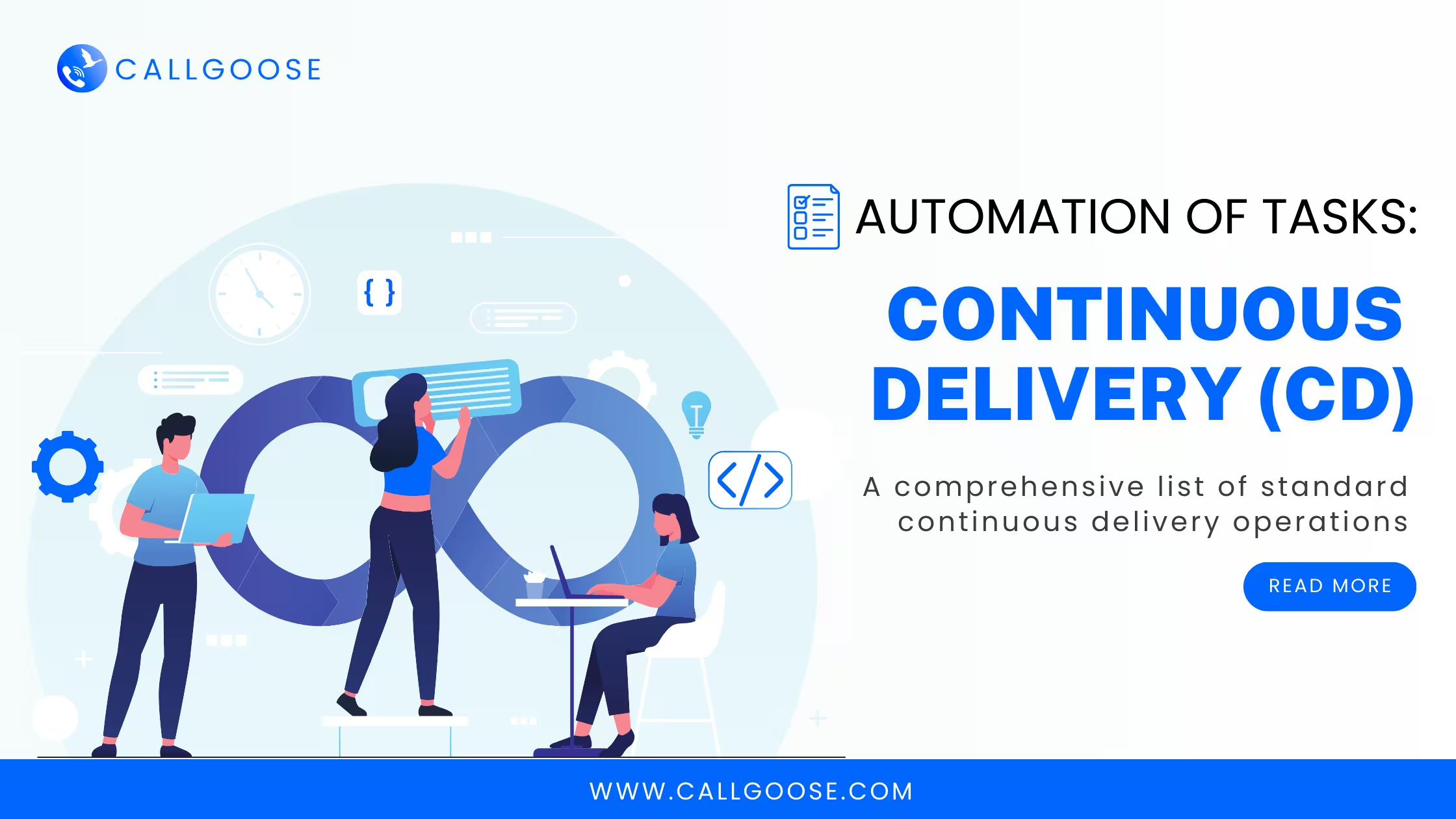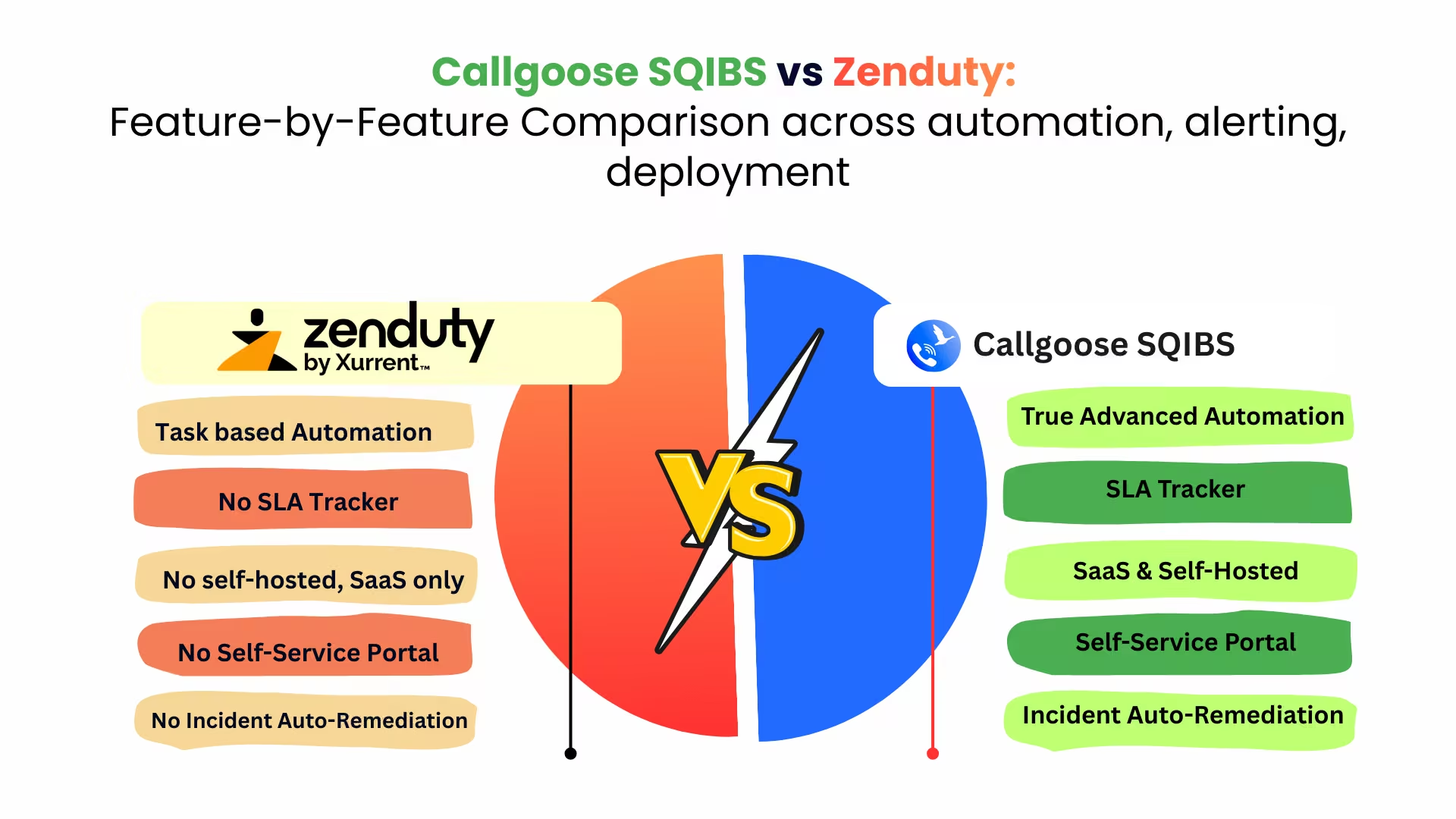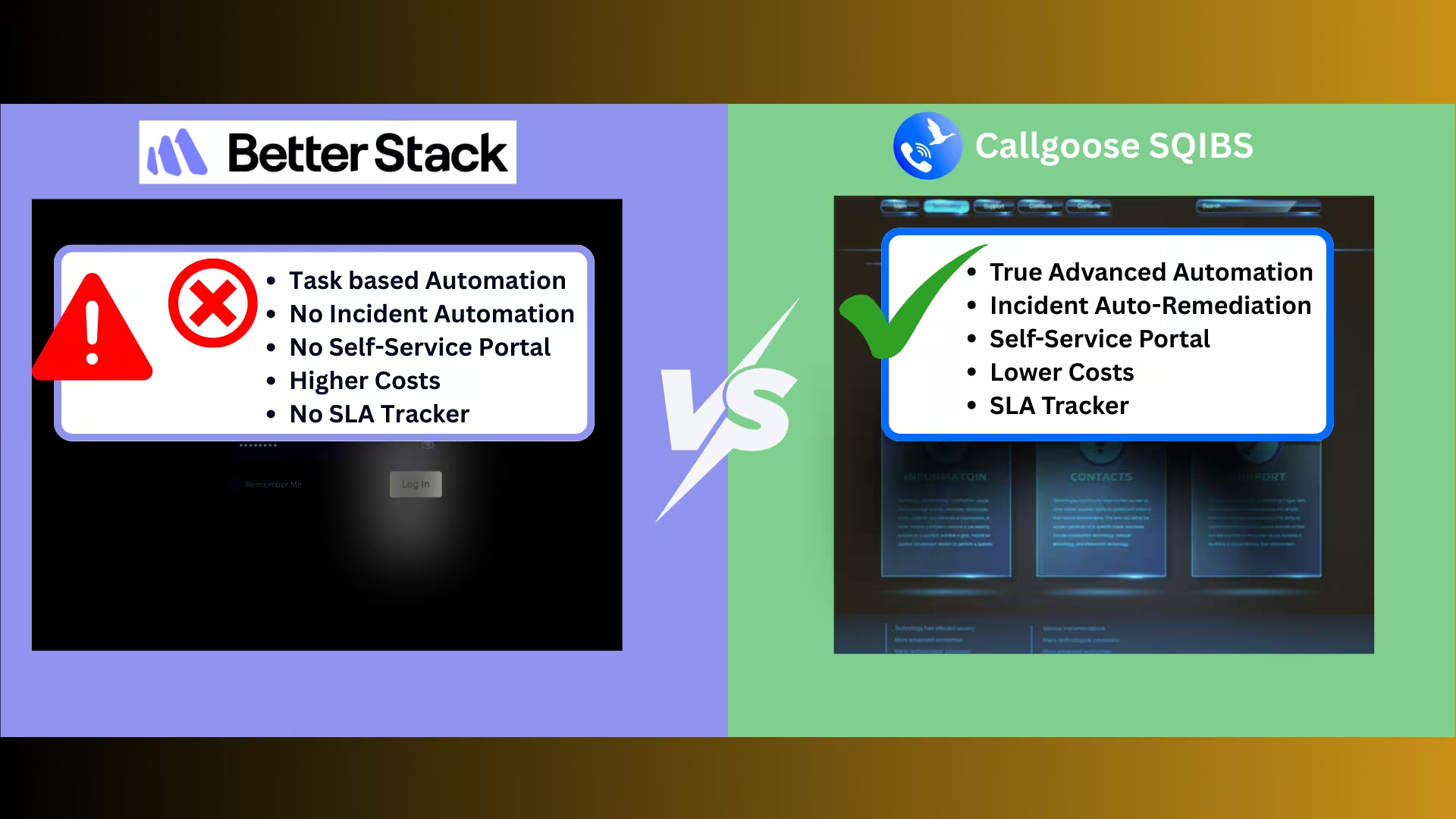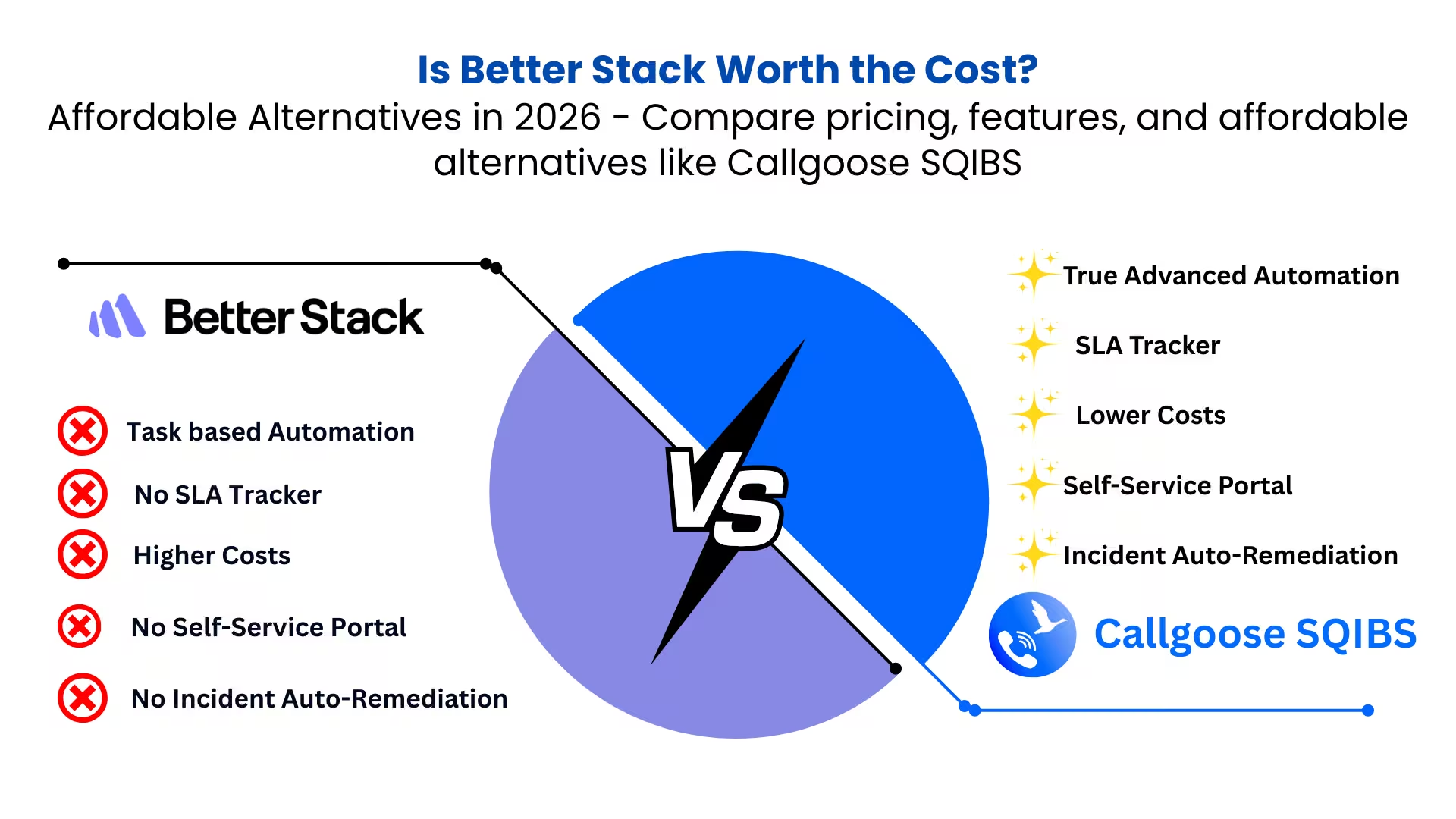
CALLGOOSE

CALLGOOSE
BLOG
16 December 2024 | Tony Philip
5 Minute Read
Continuous delivery (CD) is a critical component of modern DevOps practices, enabling organizations to deliver software changes to production reliably and frequently. Here’s a comprehensive list of standard continuous delivery operations that are commonly automated in the IT world:

To automate these continuous delivery operations, you can leverage various tools and platforms, such as:
Organizations can significantly enhance their software delivery process by automating these standard continuous delivery operations using Callgoose SQIBS Automation Platform, ensuring faster, more reliable, and more secure deployments, ultimately leading to improved business outcomes and customer satisfaction.
Refer to Callgoose SQIBS Incident Management and Callgoose SQIBS Automation for more details

BLOG
5m Read
Callgoose SQIBS vs Zenduty | Detailed Feature Comparison 2026 - comparison of automation, workflows, playbooks, SLA tracking, alerting, pricing, and enterprise readiness
23 February 2026
|
Sophia Mark
Introduction As incident management platforms mature in 2026, buyers are no longer satisfied with basic alerting and task coordination. Enterprises increasingly demand automation-driven resolution, SL...

BLOG
5m Read
Looking for the best Better Stack alternative in 2026? Discover why Callgoose SQIBS leads in automation, SLA tracking, ChatOps, multilingual alerting, and cost efficiency
12 February 2026
|
Sophia Mark
Introduction As incident response requirements evolve in 2026, organizations are no longer satisfied with tools that only deliver notifications and coordinate manual response. Teams now require automa...

BLOG
5m Read
Explore the most affordable Better Stack alternative in 2026 - Callgoose SQIBS offers automation, SLA tracking, and ChatOps at a lower cost
12 February 2026
|
Sophia Mark
Introduction For DevOps, SRE, and IT operations teams in 2026, affordability alone is not sufficient, cost efficiency must be paired with automation depth, SLA governance, and operational scalability....

CALLGOOSE
SQIBS
Advanced Automation platform with effective On-Call schedule, real-time Incident Management and Incident Response capabilities that keep your organization more resilient, reliable, and always on
Callgoose SQIBS can Integrate with any applications or tools you use. It can be monitoring, ticketing, ITSM, log management, error tracking, ChatOps, collaboration tools or any applications
Callgoose providing the Plans with Unique features and advanced features for every business needs at the most affordable price.
Unique Features